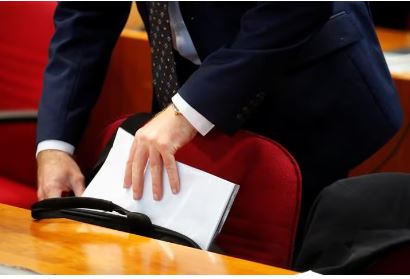
The legal field continues to confront the challenges posed by generative artificial intelligence (AI), as another attorney faces disciplinary action for relying on unverified AI-generated research. In a recent ruling, U.S. District Judge Marcia Crone imposed sanctions on Texas attorney Brandon Monk for submitting a court filing that included fabricated case citations and quotations produced by an AI tool.
Sanctions Imposed on Attorney for AI Missteps
The case arose from a wrongful termination lawsuit, Gauthier v. Goodyear Tire & Rubber Co., in the U.S. District Court for the Eastern District of Texas. Judge Crone ordered Monk to pay a $2,000 penalty and attend a legal education course on the appropriate use of generative AI in legal practice.
This marks the latest incident in a growing number of cases where attorneys have faced consequences for submitting court documents containing unverifiable or fabricated information generated by AI.
AI-Generated Errors Uncovered
The issue surfaced when Goodyear’s legal team, led by Kelley Edwards of Littler Mendelson, challenged several case citations included in Monk’s filings. Upon investigation, it was revealed that the cited cases were nonexistent, prompting the court to demand an explanation.
Want to know if you’re earning what you deserve? Find out with LawCrossing’s salary surveys.
In an earlier filing dated November 15, Monk apologized for what he described as an unintentional mistake resulting from his use of an AI legal research tool. He admitted that some of the quotations were improperly placed but maintained that the errors were inadvertent.
Judge Crone was not persuaded by this explanation, highlighting Monk’s failure to verify the research or address the inaccuracies after Goodyear’s attorneys raised the issue. The judge emphasized that lawyers have a professional responsibility to ensure the accuracy of their filings, regardless of the tools they use.
Courts Grapple with Generative AI
The rise of generative AI tools has sparked widespread debate within the legal profession. While these tools offer significant potential for streamlining legal research and drafting, they are prone to generating fabricated or “hallucinated” information, posing risks for attorneys who rely on them without proper verification.
Federal and state courts across the United States have begun issuing orders to regulate the use of AI tools by lawyers and judges. These measures aim to ensure that AI-generated content is subject to rigorous review before being submitted in legal proceedings.
Broader Implications for the Legal Profession
Monk’s case underscores the need for attorneys to approach AI tools with caution. As generative AI becomes more integrated into legal practice, lawyers must remain vigilant about their ethical and professional obligations. This includes verifying AI-generated research and adhering to court rules that demand accuracy and reliability in legal filings.
The court’s sanctions also serve as a reminder that the misuse of AI tools can have serious professional consequences, from monetary penalties to reputational harm.
Case Information
The lawsuit, Gauthier v. Goodyear Tire & Rubber Co., is being heard in the U.S. District Court for the Eastern District of Texas under case number 1:23-CV-00281.
As the legal industry continues to adapt to advancements in AI, the balance between innovation and accountability remains a pressing concern for practitioners and courts alike.
Don’t be a silent ninja! Let us know your thoughts in the comment section below.
































